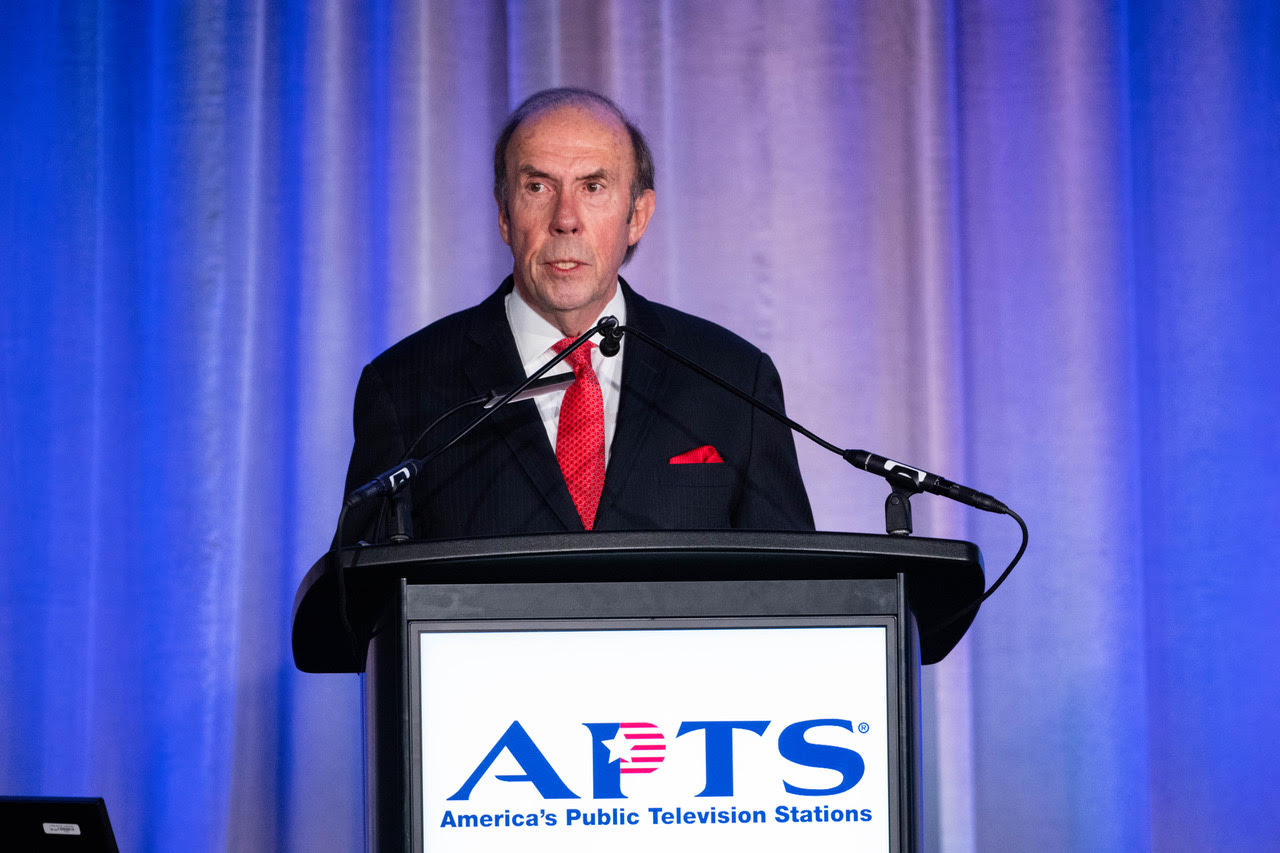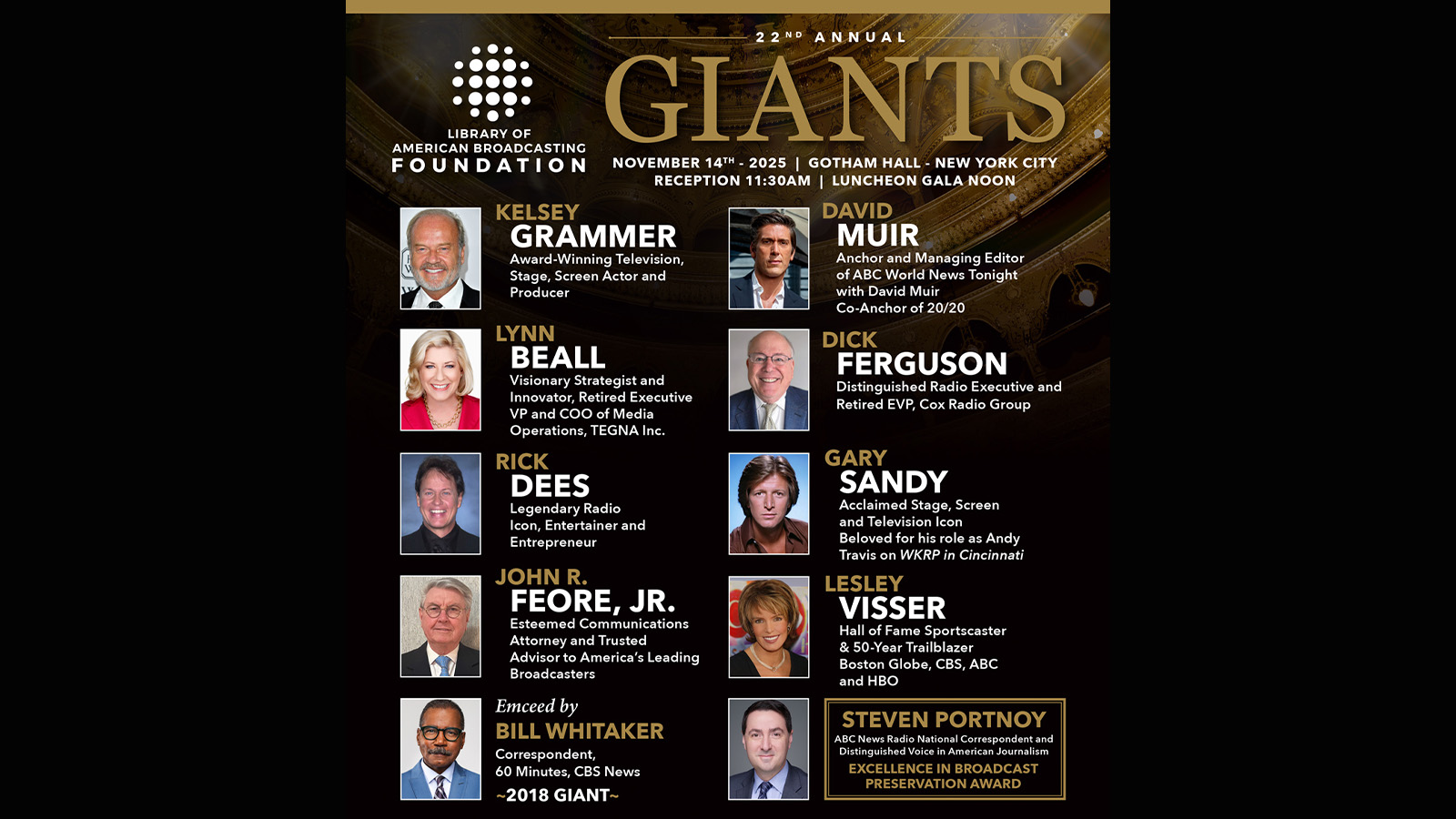APTS' Butler: $1B Total in Public Funding 'A Milestone to Celebrate'
State funding for public broadcasting reached $363 million last year, pushing total government funding past the $1B mark for the first time

WASHINGTON, D.C.—Total government funding for public media rose to record levels last year, passing the $1 billion mark for the first time, America’s Public Television Stations president and CEO Patrick Butler said in his annual address to the Public Media Summit.
Noting the important role that public media played during the pandemic, where more than 100 million American contracted COVID and a million died, Butler stressed that the future of local public television stations is “a public service enterprise reaching far beyond the confines of the television screen.
Local stations are already “inventing the future,” launching dedicated education and health channels, interactive job training courses geared to local market demands, public safety and border security communications networks, and more, he said.
Butler also hailed the adoption of the Next Gen broadcast standard as a platform for greater progress and innovation in the future.
“Twenty markets have made the transition to the new ATSC 3.0 NextGen TV broadcast standard with all of its potential for greater mobility, security, addressability interactivity, spectrum efficiency and signal strength, as well as dramatically better picture and sound quality and more stations are converging every month,” Butler said. “Software on display at this summit will give NextGen stations the ability to connect directly with viewers, increase engagement with them and enable new revenue opportunities. And before us lies the intriguing prospect of using a portion of our spectrum to support a national data distribution that work connecting consumers and institutions of all kinds to the billions of devices on the Internet of Things….[This] pathbreaking platform…deploys the right spectrum for the right purpose at the right time for precisely such applications. Without the need for elaborate station engineering. South Korea has found a way to link the NextGen broadcast standard with 5G technology for such a network and we can too.”
Public media’s work in delivering a host of new services for education, emergency alerts and entertainment during the COVID period of “sorrow and anxiety” also helped them build public support for increased funding during recent years, Butler said.
“At our last in-person Summit in 2020, I was proud to report that federal funding for the Corporation for Public Broadcasting (CPB) stood at $465 million as a result of a $20 million increase that you and we at APTS secured for the appropriation cycle just passed,” Butler said. “Since then, the CPB funding has increased every year by a total of $70 million. And the CPB appropriation now stands at an all time high of $535 million.”
Get the TV Tech Newsletter
The professional video industry's #1 source for news, trends and product and tech information. Sign up below.
Meanwhile, state governments have stepped up their support, Butler said. “Thirty-nine states now provide funds for public broadcasting and 20 of those states, providing more than half of our state funding, have both Republican governors and Republican legislatures. Including investment in capital projects and other special initiatives as well as station operations, state funding for public broadcasting reached $363 million last year and all the time record altogether government support for public broadcasting past the $1 billion dollar mark last year and that is a milestone worth celebrating.”
Butler acknowledged, however, that public stations face a difficult fiscal climate going forward.
“A new Republican majority in the House of Representatives has come to Washington determined to rein in federal spending and reduce the national debt, investing only in programs they deem efficient, effective and essential,” he said. “One influential proposal making the rounds right now would reduce federal spending by $9 trillion over the next 10 years, largely through cuts in domestic programs. And we are on that list. Securing further increases for public broadcasting in such a climate is a daunting proposal."
"But we can say with absolute confidence that no federal appropriation does more with less than we do with one hundredth of one percent of the federal budget," he continued. "….[It] will be our responsibility, our opportunity to show them and every lawmaker how essential our work and public safety, education and civic leadership is to their constituents….We must impress on them that most stations in most markets simply don't have the donor base of corporations, foundations and generous individuals to sustain these services, much less enhance them without federal support. The Government Accountability Office reached precisely that conclusion when Congress asked them to study the question several years ago and the answer hasn't changed. This is why we're asking for an increase of $40 million for CBP in the next appropriation cycle, and level funding for ready-to-learn interconnection and system infrastructure and the next gen warning system. Securing that funding won't be easy. It never is. We're already advised that level of funding is a win for the next two years.”
George Winslow is the senior content producer for TV Tech. He has written about the television, media and technology industries for nearly 30 years for such publications as Broadcasting & Cable, Multichannel News and TV Tech. Over the years, he has edited a number of magazines, including Multichannel News International and World Screen, and moderated panels at such major industry events as NAB and MIP TV. He has published two books and dozens of encyclopedia articles on such subjects as the media, New York City history and economics.

